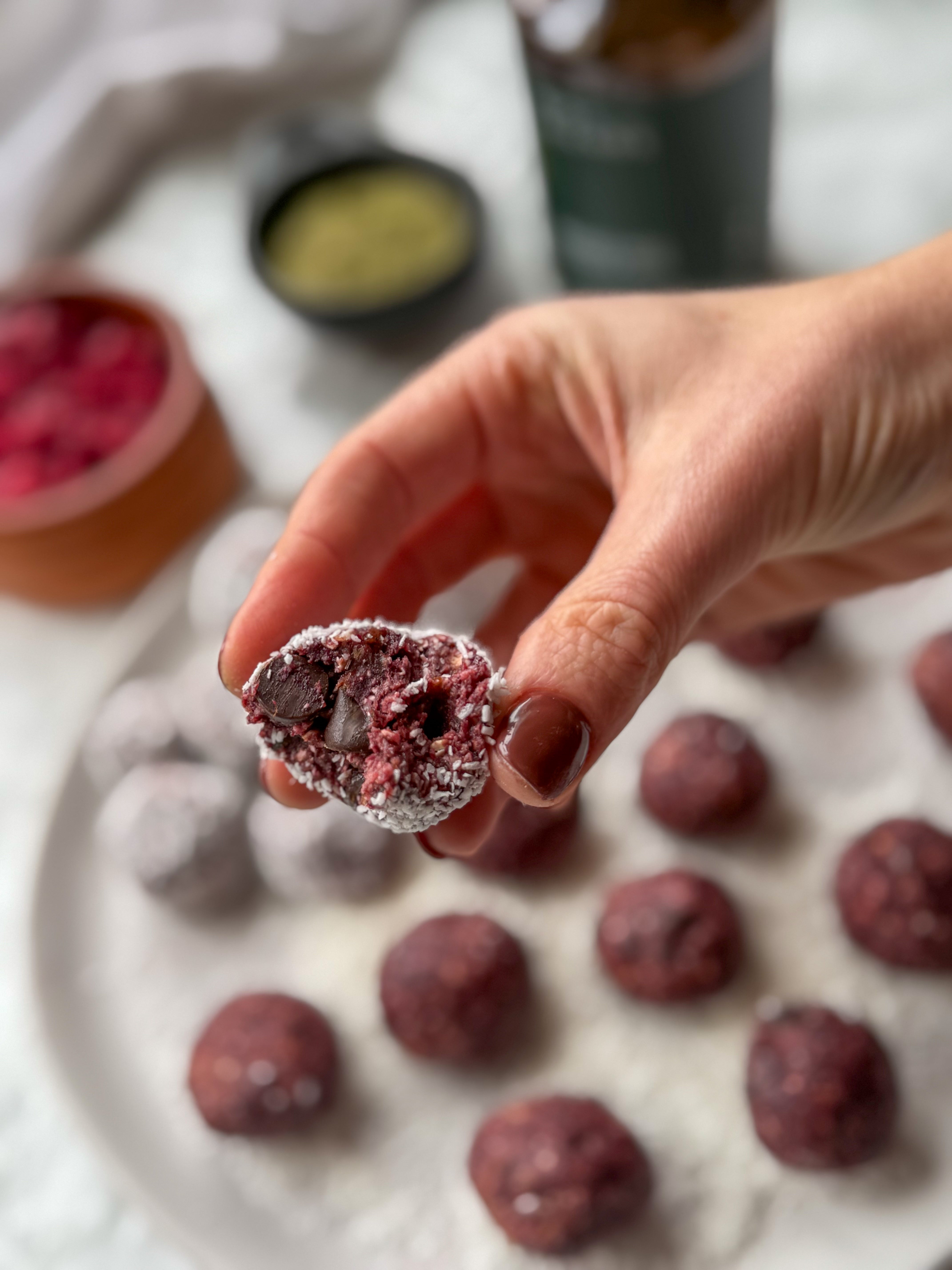
GLP-1: The hormone everyone’s talking about – and why women should be listening
From wellness influencers to medical experts, GLP-1 is everywhere right now. But what exactly is it – and why is it so important for women’s health?
Let’s take a closer look.
What is GLP-1?
GLP-1 stands for Glucagon-Like Peptide-1 – a hormone secreted by the cells in your small intestine in response to food intake, as well as some other triggers. It plays a key role in regulating appetite, blood glucose and insulin production.
Here’s what GLP-1 does:
-
Enhances insulin secretion to help reduce blood sugar after eating
-
Slows gastric emptying, so food stays in your stomach longer
-
Promotes satiety by signalling to the brain that you’ve had enough to eat
-
Reduces glucagon secretion, which helps control blood sugar levels
The net effect? More stable energy, fewer cravings, better blood sugar control – and, over time, improved metabolic and hormonal health.
Why is GLP-1 especially important for women?
GLP-1 is about more than metabolism – especially for women.
When your natural GLP-1 production is functioning optimally, it contributes to:
-
More stable energy levels throughout the day
-
Fewer cravings, including around your cycle
-
Improved cyclical ovulation and progesterone production
-
Better mood and cognitive function
-
Support for fertility and healthy hormones
-
Reduced inflammation and improved gut health
And because blood sugar and hormone balance are so intricately linked, supporting GLP-1 can play a meaningful role in managing conditions like PMS, PCOS, insulin resistance and some of the symptoms being attributed to perimenopause.
What can impair GLP-1?
A number of lifestyle and dietary habits can negatively impact your body’s ability to produce or respond to GLP-1, including:
Lack of bitter foods: The bitter taste profile of foods and drinks stimulates the production of GLP-1 so when we don’t eat enough bitter foods, such as green leafy vegetables, production can be compromised.
Diets high in ultra-processed foods or refined carbs: These foods often spike blood sugar rapidly, disrupting insulin’s effects and dampening GLP-1 production. They also tend to lack nutrients and fibre, which are key for gut health and hormone signalling.
Low fibre intake: Fibre feeds beneficial gut bacteria, which help regulate GLP-1. A low-fibre diet disrupts a healthy gut microbiome, impairing both gut integrity and GLP-1 secretion.
Chronic stress: Ongoing stress increases cortisol, which interferes with insulin sensitivity and alters gut-brain communication. This can suppress GLP-1 production and reduce your body's ability to respond to it effectively.
Inadequate sleep: Poor sleep decreases GLP-1 and increases ghrelin (your hunger hormone), making it harder to feel full. It also affects insulin function and appetite regulation.
Inflammation in the gut: GLP-1 is produced in the intestinal lining, so if the gut is inflamed (due to food intolerances, dysbiosis or stress), GLP-1 production may be impaired.
Insulin resistance or blood sugar dysregulation: When insulin doesn’t work properly, the body may produce more GLP-1 to compensate. Over time, this can lead to GLP-1 resistance, where your body no longer responds well to it.
While medications like Ozempic are designed to mimic the effects of GLP-1, your body has its own powerful ability to produce this hormone naturally – and it’s worth supporting. There’s no risk of side effects with your body’s own production.
How to support GLP-1 naturally
You don’t need injections or medications to improve your GLP-1 function. In fact, some of the most effective ways to support this hormone are simple lifestyle shifts:
1. Include more bitter foods and herbs
Bitterness is a super star at promoting your body’s production of GLP-1. Include more green vegetables and medicinal herbs such as Gentian, Globe artichoke and St Mary’s Thistle.
2. Focus on fibre
Fibre – especially soluble fibre – feeds beneficial gut bacteria that help regulate GLP-1 production. Aim for:
-
Legumes like lentils
-
Flaxseeds and chia
-
Oats and psyllium husk
-
A wide range of vegetables
3. Balance your plate
Protein helps increase satiety and balance blood sugar, which in turn supports GLP-1 signalling. Combine fibre-rich carbs with quality protein and nutritious fats at each meal to minimise spikes and crashes.
4. Eat less (or omit) ultra-processed food
Diets high in refined sugars, additives and processed grains can impair gut health and reduce GLP-1 signalling. Prioritise whole, real foods.
5. Prioritise ovulation
During your menstrual years, ovulation is a sign that your hormonal system is working well. The hormone progesterone (produced after ovulation) enhances insulin sensitivity and supports blood sugar regulation – both of which are closely tied to GLP-1 function. Once ovulation ceases as it naturally does by menopause, turn your focus to the other tips here for naturally supporting your own GLP-1 production.
6. Increase movement
Regular physical activity – especially strength training – has been shown to improve GLP-1 responsiveness. It also supports insulin sensitivity and blood sugar regulation.
GLP-1 mimicking drugs might be making headlines for weight management, but focussing on helping your body to do what it is perfectly capable of doing – producing its own GLP-1 – has many advantages without the risk of side effects. Plus, the role of GLP-1 in women’s health goes far deeper. From regulating appetite and supporting ovulation to improving mood and reducing inflammation, this hormone is a powerful player in your overall wellbeing.
The good news? You don’t need a prescription to support it. With the proper nourishment, more bitterness in what you eat, sleep and movement, your body already knows what to do.
GLP-1 myths, busted
MYTH #1: You need a drug to benefit from GLP-1.
FACT: For many women, supporting ovulation and blood sugar naturally is more sustainable – and more effective long term.
MYTH #2: GLP-1 is just about weight loss.
FACT: It’s also about fertility, inflammation, mood, cravings, and cognitive health.
MYTH #3: All weight struggles are about willpower.
FACT: Hormones like GLP-1, insulin and cortisol deeply influence appetite and metabolism.
MYTH #4: Supplements can’t influence GLP-1.
FACT: Certain nutrients and herbs can support your body's natural GLP-1 production and sensitivity.




